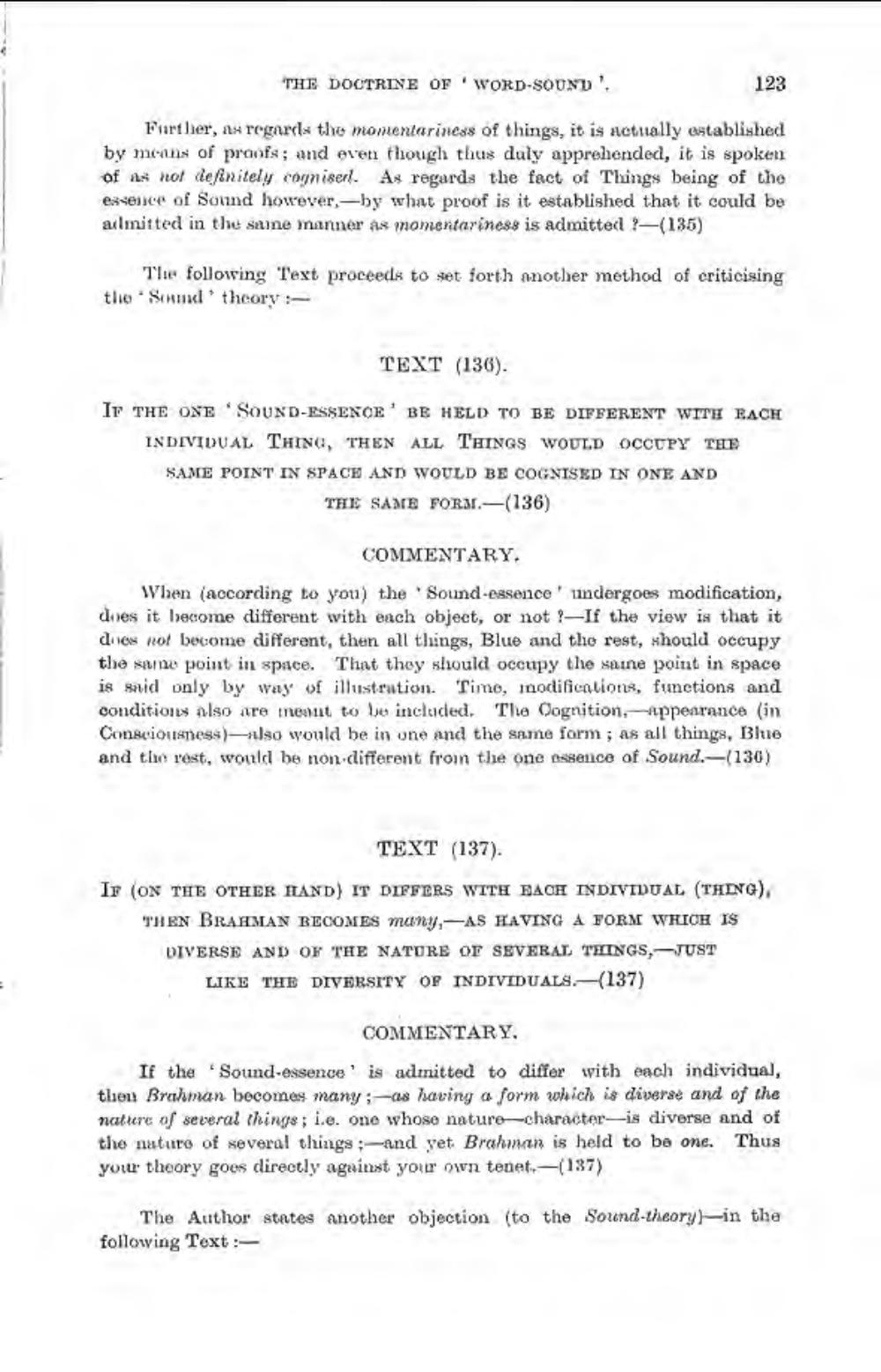________________
THE DOCTRINE OF WORD-SOUND.
123
Further, as regards the momentariness of things, it is actually established by means of proofs; and even though thus duly apprehended, it is spoken of as not definitely cogniserl. As regards the fact of Things being of the essence of Sound however,-by what proof is it established that it could be alınitted in the same manner as momentariness is admitted ?-(135)
The following Text proceeds to set iorth another method of criticising the Sexual theory
TEXT (136).
IT THE ONE SOUND-ESSENCE' BE HELD TO BE DIFFERENT WITH EACH
INDIVIDUAL THING, THEN ALL THINGS WOULD OCCUPY THE SAME POINT IN SPACE AND WOULD BE COGNISED IN ONE AND
THE SAME FORM.-(136)
COMMENTARY.
When (according to you) the Sound -essence' undergoes modification, does it lecome different with each object, or not?-If the view is that it dives not become different, then all things, Blue and the rest, should occupy the same point in space. That they should occupy the saine point in space is said only by way of illustration. Timo, modifications, functions and conditions also are meant to be included. The Cognition, Appearance (in Consciousness) - so would be in one and the same form ; As all things, Blue and the rest, would be non different froin the one essence of Sound.-(130)
TEXT (137). IF (ON THE OTHER HAND) IT DIFFERS WITH BACH INDIVIDUAL (THING),
THEN BRAHMAN BECOMES many,-AS HAVING A FORM WHICH IS DIVERSE AND OF THE NATURE OF SEVERAL THINGS, JUST
LIKE THE DIVERSITY OF INDIVIDUALS.-(137)
COMMENTARY, If the Sound-essence' is admitted to differ with each individual, thieu Brahman becomes many ;-as having a form which is diverse and of the natrere of several things; i.e. one whose nature-character is diverse and of the nature of several things:-And yet Brahman is held to be one. Thus your theory goes directly against your own tenet.-(137)
The Author states another objection (to the Sound-theory)-in the following Text:




